Breaking! New Report By Oceana Finds That Plastic Pollution Is Responsible For Entangling & Choking 1,800 Marine Animals In U.S. Waters
In a report released yesterday, Oceana reveals data on marine mammals and sea turtles becoming entangled and swallowing plastic off the coast of the United States. After surveying dozens of government agencies, organizations, and institutions that collect data on the impact of plastic on marine animals, Oceana found evidence of nearly 1,800 animals from 40 different species swallowing or becoming entangled in plastic since 2009.
Of those, a staggering 88% were species listed as endangered or threatened with extinction under the Endangered Species Act. Perhaps even more concerning, Oceana says that the animals reflected in this report are far fewer than the true number of sea turtles and marine mammals that consume or become entangled in plastic in U.S. waters.
“Before now, the evidence that many U.S. marine mammals and sea turtles were being harmed by plastic was not compiled in one place. While there may never be a complete account of the fate of all marine animals impacted by plastic, this report paints a grim picture. The world is hooked on plastic because the industry continues to find more ways to force this persistent pollutant into our everyday routines, and it is choking, strangling, and drowning marine life,” Dr. Kimberly Warner, report author and senior scientist at Oceana, said in a statement. “This report shows a wide range of single-use plastic jeopardizing marine animals, and it is not just the items that first come to mind, like bags, balloons, and bottle caps. These animals are consuming or being entangled in everything from zip ties and dental flossers to mesh onion bags people use at the grocery store. We can only expect these cases to increase as the industry continues to push single-use plastic into consumers’ hands.”
Oceana’s report found that plastics affected animals at all life stages, from recently hatched sea turtles to seal mothers with nursing pups. Plastic consumption was the most prevalent problem in the animal cases reviewed, comprising 90% of the total animals affected. Entanglement also affected a significant number of marine mammals and sea turtles, with some animals so constricted that they sadly lost limbs as a result.
The following are some of the key points from the report:
-
Most of the species that consumed or became entangled in plastic are endangered or threatened, including: Hawaiian monk seals, manatees, Steller sea lions, and all six species of sea turtles in the United States.
-
In the cases where plastic ingestion was likely the cause of or contributor to death, seven cases involved just one piece of plastic.
-
Bags, balloons, recreational fishing line, plastic sheeting, and food wrappers were the most common types of identifiable plastics consumed by these animals.
-
Plastic packing straps, bags, balloons with strings, and sheeting were the most common items entangling the marine animals.
-
Some sea turtle groups consumed plastic up to three times more often than average for their species.
-
Some marine mammals, such as the northern fur seal, consumed plastic up to 50 times more often than average for eared seals.
-
Additional items involving entanglement or ingestion included: bottle caps, water bottles, straws, plastic chairs, plastic forks, toothbrushes, children’s toys, buckets, bubble wrap, sponges, swim goggles, plastic holiday grass, sandwich bags, and polystyrene cups.
The report features case studies from around the U.S., including:
-
In Florida, a Kemp’s ridley sea turtle was found entangled in a plastic bag that had become filled with sand. The plastic bag had wrapped around the animal’s neck, and scientists believe the animal drowned due to the weight of the bag, or it suffocated from the entanglement.
-
A Florida manatee likely died from a plastic bag, straw, string, pantyhose, and fishing line that had all filled its stomach and colon.
-
In Virginia, a female sei whale swallowed a DVD case, which lacerated her stomach and led to gastric ulcers, harming her ability to find food.
-
In New Jersey, a plastic bag was the only item found in the stomach of a dead pygmy sperm whale.
-
In California, a northern elephant seal nursing a dependent pup was found with a packing strap around her neck.
-
In South Carolina, a sea turtle center found almost 60 pieces of plastic that a loggerhead sea turtle defecated during its rehabilitation.
“This report is merely a snapshot of what’s happening to the animals inhabiting plastic-polluted waters around the United States, imagine how great the numbers would be if they included the animals not observed or documented by humans,” stated Christy Leavitt, report author and plastics campaign director at Oceana. “Plastic production is expected to quadruple in the coming decades, and if nothing changes, the amount of plastic flowing into the ocean is projected to triple by 2040. The only way to turn off the tap and protect our oceans is for companies to stop producing unnecessary single-use plastic, and that will require national, state, and local governments to pass policies ensuring they do.”
Marine animals swallow plastic when they mistake it for food, or inadvertently swallow it while feeding or swimming. Once swallowed, it can obstruct their digestion or lacerate their intestines, and all of this can interfere with their ability to feed and obtain nourishment. These problems can result in starvation and death. When animals become entangled in plastics, they can drown, choke to death or suffer physical trauma, such as amputation and infection. Entanglement can also cause malnutrition when it prevents their ability to feed properly.
Scientists now estimate that 15 million metric tons of plastic floods into our oceans every year. That equates to about two garbage trucks’ worth of plastic entering the ocean every minute. The U.S. generates more plastic waste than any other country, according to a 2020 study. Plastic has been found in every corner of the world and has turned up in our drinking water, beer, salt, honey, and more. With plastic production growing at a rapid rate, increasing amounts of plastic can be expected to flood our planet with devastating consequences.
Tell your members of Congress to protect oceans and marine life from plastic pollution by voting in favor of a first-of-its-kind recently introduced bill that would phase out certain single-use plastics and shift the burden of plastic waste to the companies producing it. Please sign in support of The Break Free From Plastic Pollution Act, HERE!
You can help all animals and our planet by choosing compassion on your plate and in your glass. #GoVeg


